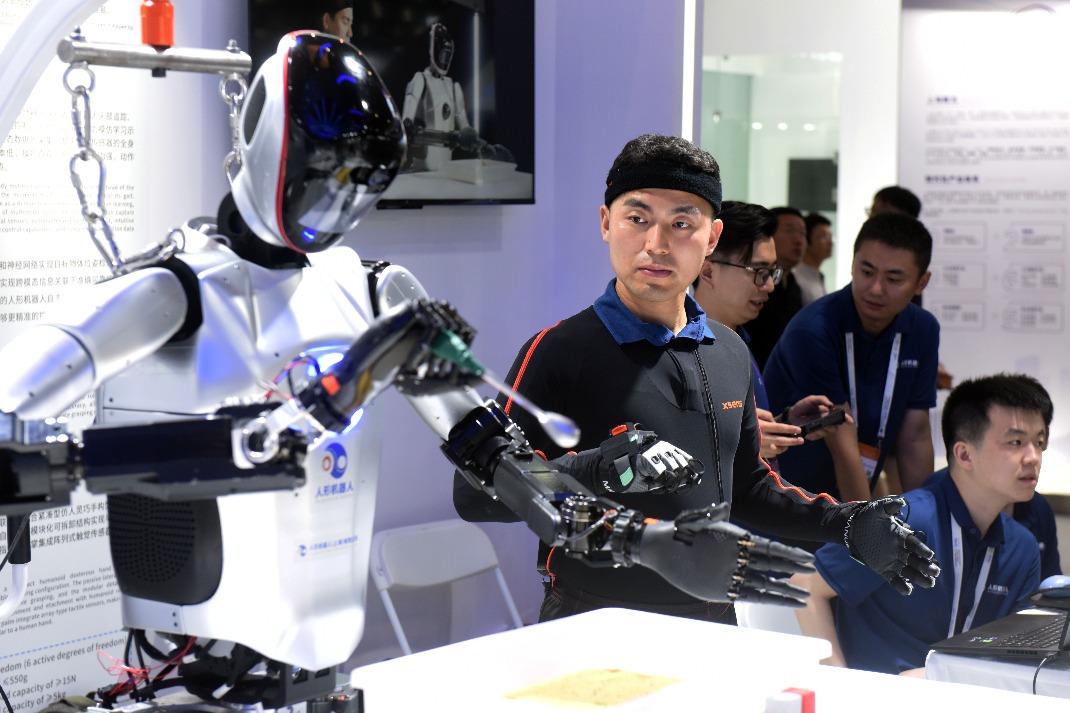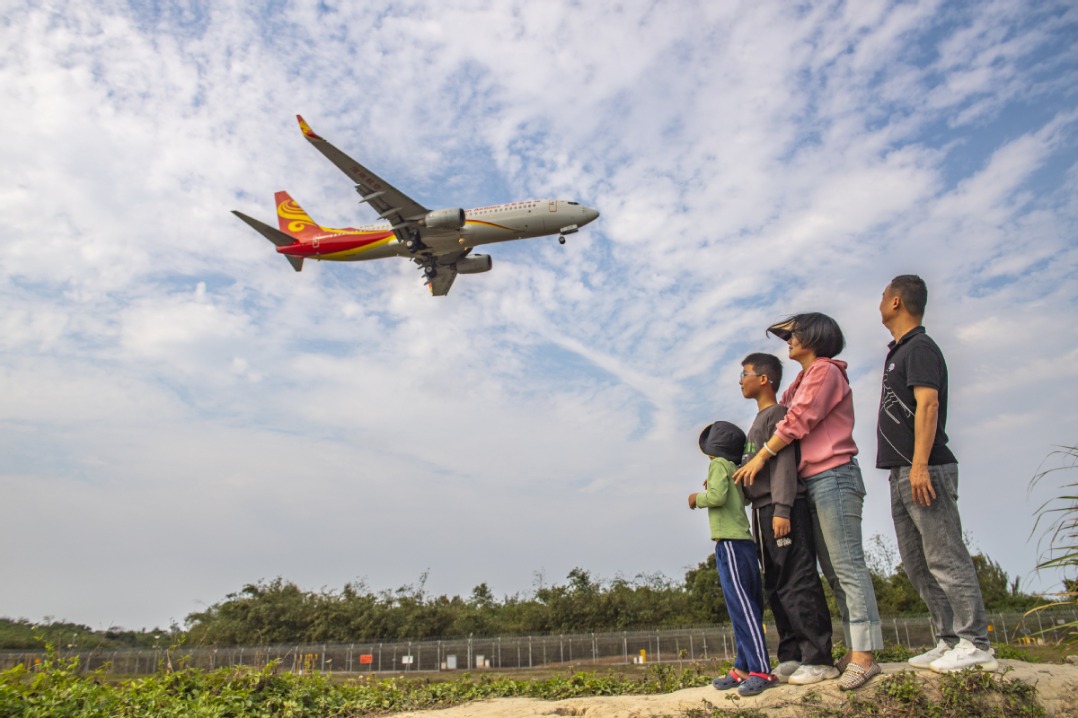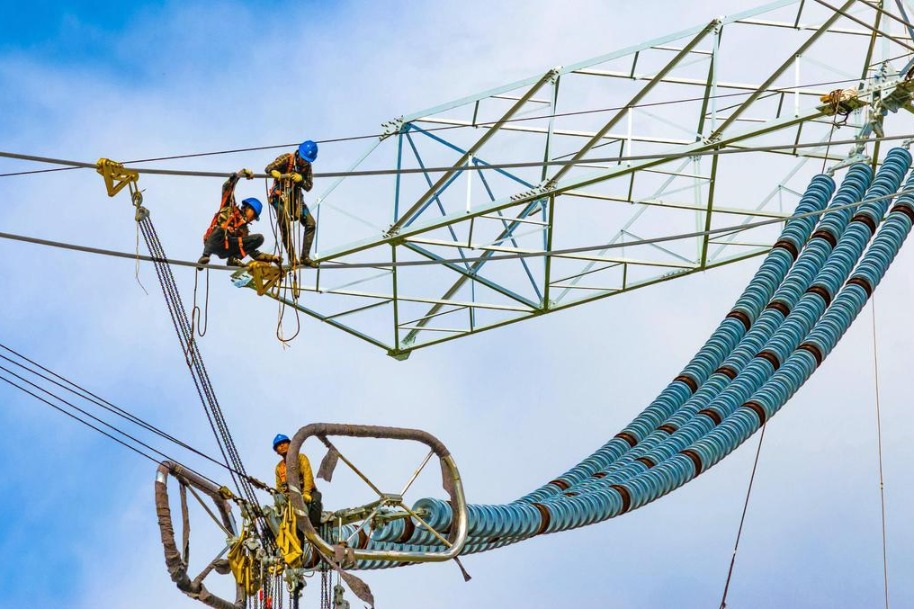Driven by connectivity


China and Vietnam should improve cooperation in railway and agri projects, optimize exchange mechanism for their currencies and more
On Aug 19, To Lam, general-secretary of the Central Committee of the Communist Party of Vietnam and president of Vietnam, paid a state visit to China. The two sides signed 14 bilateral cooperation documents, which focused on planning the blueprint for all-round connectivity between the two countries in the future, and moving toward a new era of bilateral relations driven by "hard connectivity, soft connectivity, and heart-to-heart connectivity".
The visit yielded remarkable results, breaking the bottleneck of China-Vietnam connectivity. In terms of railway construction, the signing of the Certificate of Transfer of Archives on the Results of the Vietnam Aid Project for the Lao Cai-Hanoi-Hai Phong Standard Gauge Railway Line Planning Project and an official letter from the Ministry of Transport of the Socialist Republic of Vietnam and the China International Development Cooperation Agency of the People's Republic of China on the feasibility study of the planning technical assistance project for the two standard gauge railways of Lang Son-Hanoi and Mong Cai-Ha Long-Hanoi have solved the problem in gauge and inconsistent technical standards. In terms of trade in agricultural products, customs clearance procedures have been simplified through the signing of protocols on phytosanitary and food safety requirements, which has facilitated the entry of Vietnamese agricultural products into the Chinese market.
In the financial services sector, a memorandum of understanding was signed to address obstacles in direct transactions between the renminbi and the Vietnamese dong, which is expected to reduce transaction costs and improve market liquidity. In the digital economy sector, the two sides signed a memorandum of understanding to remove obstacles in technical standards, data protection and other areas. In people-to-people exchanges, the two sides agreed to deepen cooperation and plan to mark 2025 as the "Vietnam-China People-To-People Exchange Year" to enhance youth and subnational exchanges, mutual understanding and trust.
At the bilateral level, "hard connectivity" has deepened China-Vietnam economic cooperation and facilitated trade through infrastructure development; "soft connectivity" has promoted exchanges in science, technology, education and culture and enhanced mutual trust; while "heart-to-heart connectivity "has enhanced mutual understanding and friendship between the two peoples, paving the way for long-term cooperation. These measures have deepened China-Vietnam friendly relations, promoted economic integration and social progress and brought practical benefits to regional development. At the global level, the model emphasizes win-win cooperation, provides a platform for addressing global challenges, and helps improve the global governance mechanism. Through technological and economic cooperation with Vietnam, China has ensured the stability and diversity of its supply chain, alleviated economic pressure brought about by tensions between China and the United States, and helped maintain the stability of the global economic order.
Lam's visit has signaled a significant boost to connectivity between the two sides.
When it comes to implementation, however, cooperation projects may still encounter issues such as technical docking and insufficient capital investment. The promotion of railway projects requires huge financial and technical support; agricultural cooperation faces the risk of fierce market competition and price fluctuations; and the direct exchange rate mechanism between the renminbi and the Vietnamese dong needs to be further optimized. Besides, digital economy cooperation faces gaps in infrastructure development.
In the future, China-Vietnam relations driven by connectivity can be promoted in the following five areas.
First, the two sides need to improve the multilateral cooperation mechanism for railway projects. More international financial institutions and private capital must be attracted to participate, and the public-private partnership model should be used to broaden financing channels. Both sides should strengthen technical exchanges and training to share construction experience, focusing on environmental protection and community participation to ensure sustainable development of the project.
Second, both sides need to make agricultural cooperation more stable and resilient. They should focus on strengthening the brand building of agricultural products and raising the added value of products. Meanwhile, China should continue to build China-ASEAN e-commerce platforms to expand product sales channels and lower market access barriers in a more proper way. Besides, an early warning mechanism can be established to respond to price fluctuations in a timely manner.
Third, both sides should optimize the market-based exchange rate mechanism between the renminbi and the Vietnamese dong. They can learn from the local currency settlement mechanism of China and Indonesia to upgrade the regional trading market between banks on the two sides.
Fourth, China can advance digital cooperation with Vietnam in accordance with the principle of "extensive consultation, joint contribution and shared benefits". We will continue to narrow the digital gap through resource sharing, technology exchange and personnel training. China and Vietnam should work together to build a digital governance system, unify and standardize rules, and ensure data security and efficiency.
Fifth, both sides should strengthen the development of information exchange platforms to enhance transparency, hold cultural exchanges and educational programs, and encourage academic research and dialogues to gradually eliminate misunderstandings and prejudices between the two peoples.
Yang Yaoyuan is a lecturer at the School of Political Party Diplomacy at Beijing International Studies University. Zhai Kun is a professor at the School of International Studies and deputy dean of the Institute of Regional Studies at Peking University. The authors contributed this article to China Watch, a think tank powered by China Daily.
The views do not necessarily reflect those of China Daily.
Contact the editor at editor@chinawatch.cn.


































